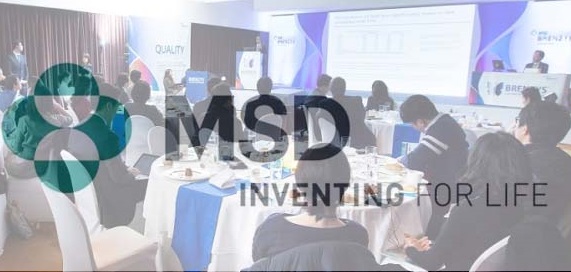Company punishes 5-6 workers for doctors’ misleading comments at product briefing

MSD Korea’s Self-Assurance program initially aimed to ensure legitimacy, transparency, balance, and accuracy when giving product information to doctors.
However, employees at the drugmaker said the program has become a punishment tool against salespersons.
Their complaints came after the Korean offshoot of the U.S.-based multinational firm gave warnings to several salespersons for holding product briefings where participating doctors left misleading comments that were beyond the control of the salespersons.
Korea Biomedical Review has learned that a salesperson at MSD Korea recently received a “warning letter” from the company for holding a product briefing for doctors working at a university hospital.
After running the Self-Assurance program, MSD Korea concluded that the salesperson violated the company’s compliance program and sent a written warning to the worker.
The company took issues with comments of a doctor, not the salesperson, at a dining session after the product briefing.
MSD Korea said the comments, such as “If you need more (foods), order more” and “Let me introduce a new member before we start,” could be misleading as if the pharmaceutical company supported a gathering of doctors.
Another problem was that one of the participating doctors, not an MSD Korea worker, prepared name tags which made it look as if the host of the event was the doctor, not the company.
“A pharmaceutical company should host a product briefing in accordance with the Pharmaceutical Affairs Act and the fair-trade regulations of the KRPIA (Korean Research-based Pharmaceutical Industry Association), but such comments and acts showed elements that could be mistaken for holding an event to support meals at a gathering of physicians,” MSD Korea internally notified to its employees.
Considering the potential risks, the company could discuss punishment stronger than a warning. However, as the management is in the early stage of introducing the monitoring program, the company is giving a written warning, it added.
Sources said at least five or six employees at MSD Korea had received warnings because of the Self-Assurance program.

MSD Korea employees are extremely unhappy about the monitoring program, saying the company went too far to take issues with doctors’ jokes and unconsciously-made behaviors.
“It’s impossible to pinpoint what to say and what not to say to physicians who came to our product briefing. It is too much that we’re getting punished for the things beyond our control,” an official at MSD Korea said.
Another company official said that an external agent randomly picks a product briefing for monitoring and notifies MSD Korea workers that he or she would participate in the briefing just three hours before the event.
“If physicians cancel the event after finding out that there will be a monitoring agent, the MSD employee who planned the event gets a penalty. MSD Korea workers get all the damages caused by the Self-Assurance program,” the official said.
The complaints of the employees over the monitoring program were noticeable in a company survey.
In the survey, employees complained that “an external agent keeps listening and recording private conversations while eating after the briefing session.”
Other complaints include, “Clients feel uncomfortable when the agent stays without eating,” and “When talking with salespersons, the agent shows a condescending attitude.”
To soothe the complaints, the company said it would improve the program. However, the measure was not to relax the monitoring but to encourage dispatched agents to be more discreet when recording a situation.
The company ordered external agents to wear a business suit, just like MSD Korea employees, not to look like a third party, and to unify their titles as “deputy managers.”
If a participant doctor asks who the monitoring person was, the salesperson should introduce him or her as “a worker who came to observe whether the presentation was going well,” the company guided.
However, employees said such a measure was absurd.
“The company forces us to accept the monitoring program, which isn’t really for clients or employees. I don’t understand why the company wanted our feedback and if it has any will to improve the situation,” an MSD Korea official said.

